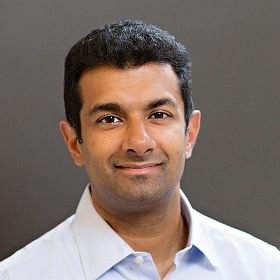There’s lots going on these days with transparency. Three cost transparency rules, as a matter of fact, just came out of CMS, for example. These rules demand that hospitals and payers make available cost information so patients can shop and employers can also shop. That last part there, about employers and/or payers being able to shop … that might wind up actually being the part of these transparency rules that has the most impact.
It all goes back to kind of a first-principle assumption that many made—including me, by the way—which is turning out to be arguable. It’s the great hope for consumerism through high-deductible health plans. The thought originally was that by pushing the burden onto patients/employees to find high-quality care at a fair price, we assumed that health care delivery would level up. We assumed that prices would come down, driven by the weight of consumer demands.
But anybody seeking to validate this hypothesis would be pretty hard pressed to claim any sort of broad-stroke success beyond cost shifting by brute force. The vast majority of patients don’t have medical degrees. This is why they went to a doctor to begin with. So, it’s unsurprising to learn that providers wield a lot of influence. If a doctor tells a patient to go here for an MRI or there for surgery, patients have a tendency to go, without questioning.
So, logically, if we want to create a high-value health care system and high-value health care—high quality at a fair price—we need to contemplate the recommendations that providers are making. These recommendations especially matter because a patient’s entry point into the health system—where they go first—can make all the difference. This is also a particularly relevant point these days with all the discussion about digital front doors.
Earlier, I spoke with Ashok Subramanian, CEO and founder over at Centivo. Centivo is a novel self-funded health plan centered around robust primary care. And I thought this episode had particular relevance given what is going on in the health care industry today.
You can learn more at centivo.com.
 Ashok Subramanian founded Centivo in 2017 after observing the inefficiency in the health care system and the pain that has resulted for employers and employees.
Ashok Subramanian founded Centivo in 2017 after observing the inefficiency in the health care system and the pain that has resulted for employers and employees.
Prior to Centivo, Ashok cofounded Liazon, operator of the nation’s industry-leading private benefits exchange for active employees. Liazon was acquired by Willis Towers Watson in 2013, and after the acquisition, Ashok served as managing director for Willis Towers Watson’s Group Exchange business. Prior to Liazon, Ashok was an associate principal at McKinsey and Co., where he served as a leader in the firm’s health care and private equity practices.
In addition to his role at Centivo, Ashok serves as an independent Board director at Artemis Health as well as a senior advisor to Silversmith Capital, a growth equity firm.
Ashok received his undergraduate degree from Princeton University, a master’s degree from Stanford University, and an MBA from the Stanford Graduate School of Business.
02:58 Background for this conversation—the entry point for where a patient enters the health system.
03:56 “Broad open-access, on-demand health care simply doesn’t work.”
04:18 “What people really do do is they listen to their provider.”
04:47 Putting more emphasis on the primary care team, as opposed to putting the burden on the employee.
05:01 High-deductible plans as blunt instruments.
05:20 Creating transparency around pricing, and the reality behind this.
05:38 “People aren’t very good at [discerning] low-value care from high-value care.”
06:57 Why people don’t challenge their doctors.
07:06 The primary care physician (PCP) as the gateway into the health care system.
07:45 Two reasons why health care is so tricky.
09:09 “There is no single awesome source of data.”
11:00 What is the PCPs’ charge?
11:43 PCPs as the change agents in health care for employers.
14:47 How do you discern who the high-value specialists are?
15:15 Building the network right the first time and making it dynamic.
17:05 Narrow networks and what’s important to focus on.
19:03 Redefining “access.”
19:22 “None of us need 40,000 doctors in our network.”
21:57 Driving better total cost.
25:02 Negotiating with the biggest health care players and operating a network with or without them.
You can learn more at centivo.com.
Check out this week’s encore episode with Ashok Subramanian, founder and #CEO of @Centivo_Health, revisiting high-deductible plans for #quality #healthcare. #healthcarepodcast #podcast #digitalhealth
“Broad open-access, on-demand health care simply doesn’t work.” Ashok Subramanian, founder and #CEO of @Centivo_Health, discusses. #healthcarepodcast #healthcare #podcast #digitalhealth
“What people really do do is they listen to their provider.” Ashok Subramanian, founder and #CEO of @Centivo_Health, discusses. #healthcarepodcast #healthcare #podcast #digitalhealth
“People aren’t very good at [discerning] low-value care from high-value care.” Ashok Subramanian, founder and #CEO of @Centivo_Health, discusses. #healthcarepodcast #healthcare #podcast #digitalhealth
“There is no single awesome source of data.” Ashok Subramanian, founder and #CEO of @Centivo_Health, discusses. #healthcarepodcast #healthcare #podcast #digitalhealth
How do you discern who the high-value specialists are? Ashok Subramanian, founder and #CEO of @Centivo_Health, discusses. #healthcarepodcast #healthcare #podcast #digitalhealth
“None of us need 40,000 doctors in our network.” Ashok Subramanian, founder and #CEO of @Centivo_Health, discusses. #healthcarepodcast #healthcare #podcast #digitalhealth




